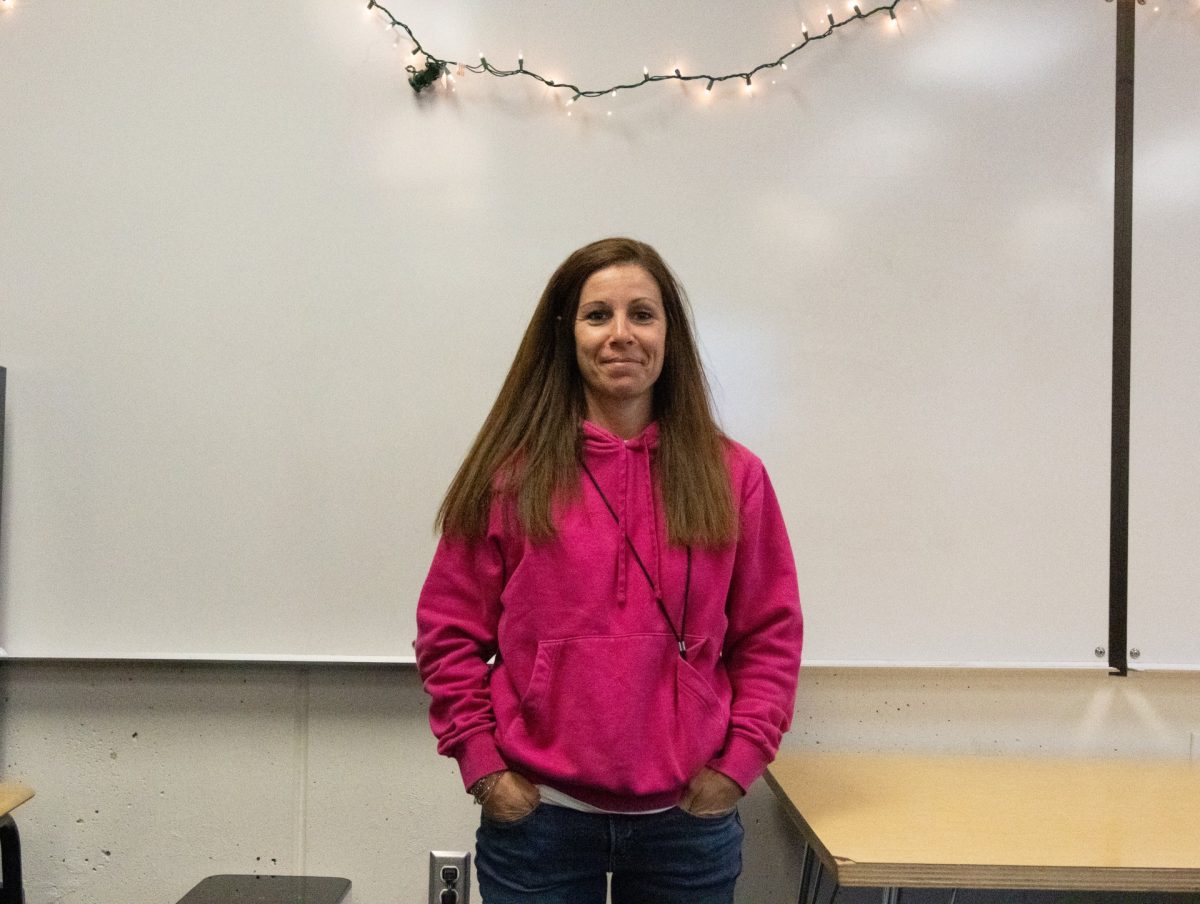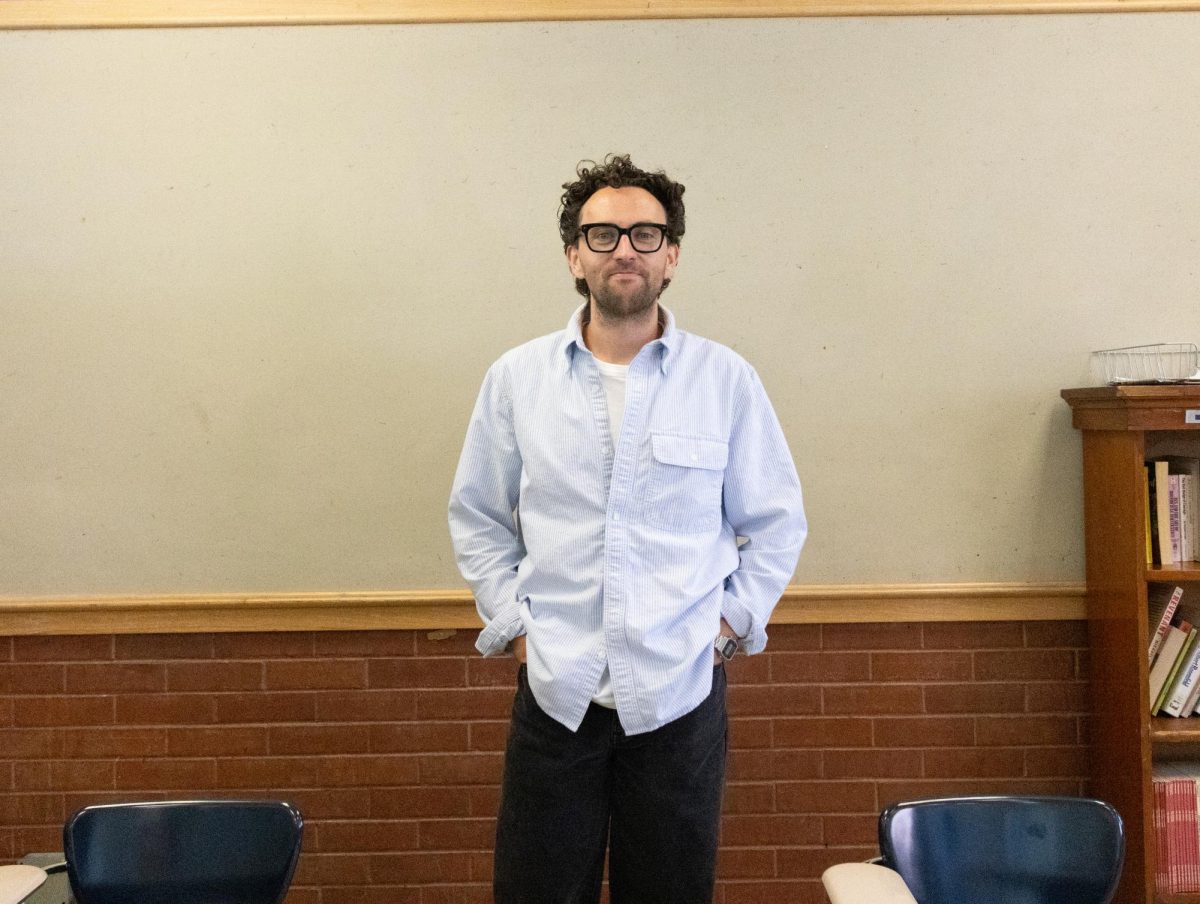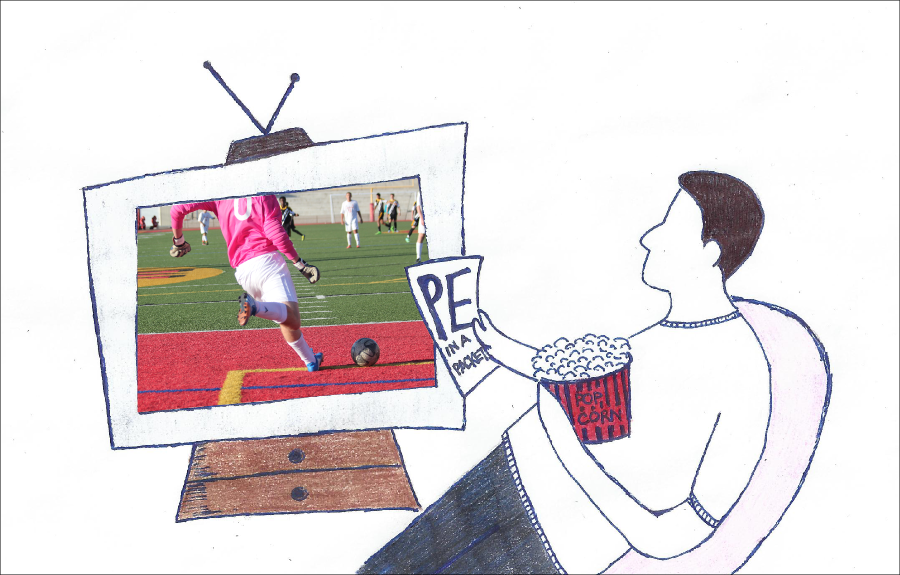Graduation Requirements Restrict Students
Students are able to complete their P.E. credit by writing in a packet
April 7, 2015
Half a year of computer tech, health, financial literacy, and US Government; 1.5 credits of PE; 1.5 credits of art and 1 credit of CTE; two years of a language and one of each science class are strongly recommended…the list goes on and on. When incoming freshman are registering for any Utah high school, they are faced with a mountain of requirements that they must fulfill in order to graduate, let alone get into college. As they progress through their high school career, the pressure to complete these requirements grows exponentially and can cause a lot of unnecessary stress.
While classes like computer tech, health, and financial literacy certainly have an important place in education, there are many students who already have the skills and/or knowledge taught in these courses and should not be forced to sit through a term of material that they already know. In light of this, the USOE (Utah State Office of Education) should either update the curriculums for these classes to make them more challenging and applicable to real life or offer proficient students the option to test out. This would free up space in their schedules and allow them more time for classes that challenge and interest them.
Even the schools themselves seem to view these classes as a chore rather than a true learning opportunity; students are allowed to complete their requirements come in the form of packets or online courses that inspire no creativity or critical thinking, only boredom. It’s not a learning experience but rather worksheet after worksheet of busy work. The most ridiculous example of this is that PE can be taken in a packet that is easy to finish in just a few days as students can simply pretend that they are exercising and write down their “results”. If the goal of an education is truly to teach students skills necessary to live a successful, happy, and healthy life, this is not the way to do it. Rather than inspire, these alternative routes truly only serve as a waste of time. However, many students are forced to choose the alternative routes because they are unable to fit a full semester class into their schedule. Further, many students would rather not waste an entire semester class on material they already know, so choose instead to complete the requirement in a packet or online because it takes less time and offers more flexibility.
For most, fulfilling graduation requirements adds stress to their lives that only serves takes away from their productivity and focus in more important matters. Highland senior Elizabeth Cook is a prime example of the type of student who had nothing to gain from taking certain required classes; she had to spend the first few months of her senior year finishing health online on top of her heavy IB workload and college applications.
“I had to take a home release in order to do health,” Cook said. “If I had been able to go into the counseling center and test out of [health and financial literacy], it would have saved me so much time.”
Cook is the epitome of a driven student, as she sacrificed her chance to take health during her sophomore year in order to fit AP Chemistry — arguably the most difficult class offered at Highland — into her schedule. It is motivated students like Cook who are most hindered by required classes because they often stand in the way of their more rigorous classes.
Obviously there is a large population of students who need to learn the skills taught in computer tech, financial lit, etc. For students proficient in these areas, however, it is pointless to make them sit through a semesters worth of familiar material.
Something that most students are unaware of going into high school is that they have the ability to test out of computer tech through a program called CertiPort. However, Certiport requires students to commute to a testing location outside of their school, and costs money. Additionally, the test is so difficult that even the most computer savvy of students would have a difficult time passing it; it requires students to know very specific terms that are unnecessary knowledge outside of the world of computer engineering. Thus, if the option to test out of classes is created, the test should only cover information that is applicable to the real world. Additionally, the test should be easily accessible and free of charge for those who are interested.
Similarly, these classes should aspire to exclusively cover information that students need to know to be successful in the real world. Currently, students in a class like computer tech, for example, learn ridiculously irrelevant things [i.e. learning the function of the MIDI (Musical Instrument Digital Interface) Synthesizer] that they will forget within minutes, or things that they have known how to do since they were seven (i.e. making a PowerPoint). While these skills are valuable for some, for the majority they are unnecessary. This is why more challenging classes with information pertinent to the modern world should be created as options for fulfilling graduation requirements. Using computer tech as an example once more, the curriculum could include a few weeks spent on the basics of Word, PowerPoint, and Excel and then dive into things like computer programming, alternative media resources/programs, and more complex ways to utilize the Microsoft programs; all skills that are highly regarded in the modern world of technology.
True learning happens when students are faced with challenging material that they can take with them into the real world. The point of going to school has always been to foster true learning and to get young people prepared to live successful lives. Based on this, graduation requirements should no longer be a burden but rather an opportunity for students to learn and grow whether that’s through the option to test out and focus on other things, or the option to take an interesting and relevant class that teaches skills necessary for success in any area of life.






























